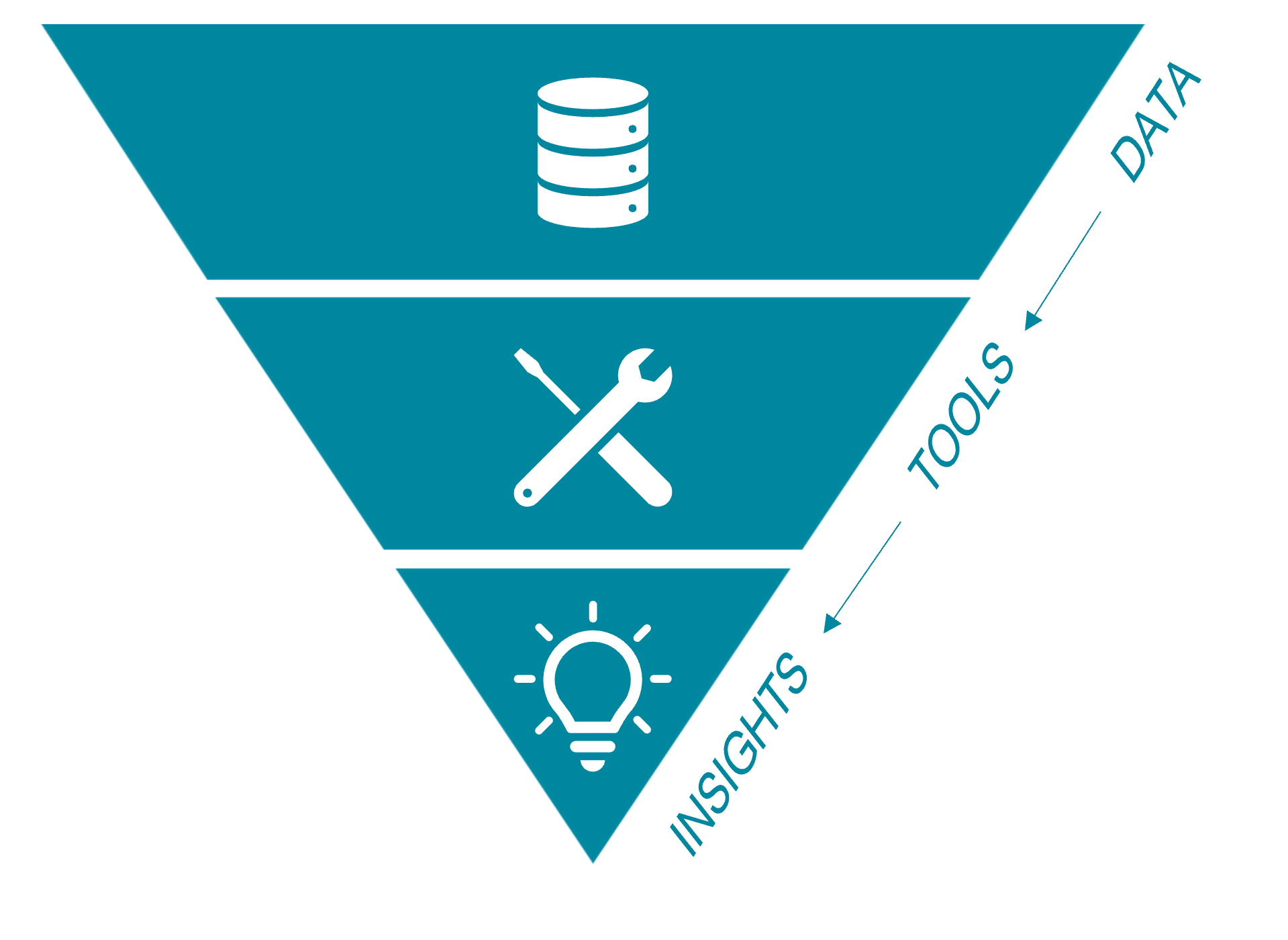Why Should You Care About Location Intelligence?
24th October 2022
LeisureVision Points is a competitively price dataset of over 250,000+ leisure locations across the UK. Points is a comprehensive dataset of locations across 4 product types including Food & Beverage (F&B), Entertainment, Competitive Socialising and Sport & Fitness. Each Point is also assigned to one of over 100+ categories. The attributes associated with each point are: Name, Brand, Location, Product & Category.
Location Intelligence Explained: Why it is Critical for a Business’ Location Planning and Site Selection
Location decisions are a fundamental aspect of successful business planning. “Location, Location, Location” expresses the importance of making the right location choice. Location often contributes to the success or failure of a particular site or an entire retail network. To really understand the importance of Location Intelligence it is important to understand what it is and how it can contribute to successful location planning decisions.
" Location often contributes to the success or failure of a particular site or an entire retail network "
Location Intelligence Explained
Location intelligence is the process of
obtaining insights from a spatial perspective. Location Intelligence can be used to inform location decisions. It is derived from the collection and analysis of geographic and geospatial data. Location intelligence often incorporates visual representations of business assets, competitor assets, and customer locations. Using location intelligence, a business can understand the consumer and competitive landscape in a region. From this, informed strategic decision making can occur based on specific consumer needs, assets in the area, and competitor presence.
Using Geodemographic Data for Successful Location Intelligence
The use of data to inform decisions is a key contributor to successful business performance and for location intelligence it is no different. Ensure you access the right data to get the most our of your analysis. Decisions to locate your business come down to accessing the right customers. Therefore, in location planning the assessment of geodemographic data is key. For an existing or potential new site you can analyse the catchment to assess whether the surrounding population aligns with you target customer profile. You can then compare and rank to other existing or potential sites.
Geodemographic classifications
categorise people into consumer types. Think of geo as the places and demographic as the people. Geodemographic data includes:
- Demographic information, including age and ethnicity
- Household data and housing characteristics
- Socio-economic factors, such as education, car ownership, employment status and economic activity
- Additional consumer information such as credit and purchase history data or survey data which some geodemographic datasets are also enriched by

Accessing the Right Data for Location Intelligence
Convenience is a crucial factor in location planning decision making. Most location intelligence software will include drive time data
to be used as a measure of distance decay. With this insight decision makers can learn:
- How far do customers currently travel to your existing sites?
- What would be the drive times for your current customers to your proposed locations?
- How far away is your proposed location from your nearest competitors?
Understanding and mapping your own and competitor locations is key when making network planning or location planning decisions. Furthermore, drive time analysis can measure the potential impact of adding a new site to your existing network. It can help to assess whether the potential demand you would capture will mitigate the customers you would steal from your other sites? These are just some key factors that can increase the probability of a successful location decision.
Data Without Analysis is Just Numbers, Tools Allow Data to Provide Location Intelligence
Possessing just the raw data alone can often have little or no impact on your location planning decisions, as it is the interpretation of data that is key. It is vital to have the ability to shape and cut data to create insight to inform business decisions. Location planning tools enable you to self-serve your analysis
by collating multiple datasets and converting it into actionable insight. With data identified and captured you can create detailed reports and maps that can be shared with stakeholders and decision makers.
Location intelligence tools can often collate a wide range of datasets, including but not limited to: geographic, census, geodemographics, and competitor location data. These tools can also have modeling capabilities built into them, so that the user can run scenarios. For example, test the impact of a new site opening or site closure.

Is Location Intelligence Relevant to You?
Location Intelligence is relevant for any type of business that serves customers in a physical retail environment. Location intelligence can be applied across multiple business functions. Whether you work in
Marketing,
Property,
Insight
or
Finance, location intelligence can be used to support your decisions.
Location intelligence should be a consideration of any business that has a geography. This could be stores, omni-channel sites or warehouses. Even if you don’t have sites, your customers have a geography. By knowing where they are, you can learn more about them and inform decisions accordingly.
Retail Location Planning
doesn’t just apply to traditional high street retailers. This could also encompass less traditional retailers, such as leisure operators
or service businesses. For example, whether you work for a restaurant and a trampoline park. At GMAP, we also specialise in automotive location planning
as well as location planning for the fuel forecourt sector.
" Location intelligence should be a consideration of any business that has a geography "
Having Understood the Importance of Location Intelligence, How Can You Gain Location Intelligence for your Business?
Using location intelligence data and tools in-house can add real value to your location planning decision making. Prior to investing, always consider whether you have the resources to get the insight you need.
If you don’t have the resources or skills available in your team, then GMAP could support you with consultancy. GMAP consultants use data science and spatial modelling techniques to help you grow, optimise, or rationalise your retail network. You and your team can then focus on finding the sites that align to your network plan and implementing the strategy!
Location Intelligence with GMAP
At GMAP we hold a number of data products that can support your location intelligence. Some of these datasets include:
GMAP also provide location intelligence software tools
that enable clients to conduct in-house spatial analysis. MVPLUS is our off-the-shelf location intelligence tool and location planning software. In addition to this, we have experience building more bespoke location intelligence tools to suit individual clients. These solutions can often allow users to work with their own data or licensed datasets. They can cut, manipulate and overlay datasets and view them spatially on a map. If you are serious about location intelligence, finding and using the right tools is key.
Get In Touch
To learn about how our location intelligence data and software, about our location planning consultancy, get in touch! Email us at info@gmap.com or call us on +44 113 306 1585
Location Intelligence Explained: Why it is Critical for a Business’ Location Planning and Site Selection
Location decisions are a fundamental aspect of successful business planning. “Location, Location, Location” expresses the importance of making the right location choice. Location often contributes to the success or failure of a particular site or an entire retail network. To really understand the importance of Location Intelligence it is important to understand what it is and how it can contribute to successful location planning decisions.
" Location often contributes to the success or failure of a particular site or an entire retail network "
Location Intelligence Explained
Location intelligence is the process of
obtaining insights from a spatial perspective to inform location decisions. It is derived from the collection and analysis of geographic and geospatial data. Location intelligence often incorporates visual representations of business assets, competitor assets, and customer locations. Using location intelligence, a business can understand the consumer and competitive landscape in a region. From this, informed strategic decision making can occur based on specific consumer needs, assets in the area, and competitor presence.
Using Geodemographic Data for Successful Location Intelligence
The use of data to inform decisions is a key contributor to successful business performance and for location intelligence it is no different. It is key to know just what the right data is accessing this for analysis. Decisions to locate your business come down to accessing the right customers. Therefore, in location planning the assessment of geodemographic data is key. Assess the catchment breakdown, what the profile of your target customers is, and how does it rank versus other potential locations. Often it is not about how good a site is in isolation, but how it compares to other potential new sites.
Geodemographic classifications
categorise people into consumer types. Think of geo as the places and demographic as the people. Geodemographic data includes:
- Demographic information, including age and ethnicity
- Household data and housing characteristics
- Socio-economic factors, such as education, car ownership, employment status and economic activity
- Additional consumer information. Some geodemographic datasets are also enriched by credit or purchase history data and survey data

Accessing the Right Data for Location Intelligence
Convenience is a crucial factor in location planning decision making. Most location intelligence software will include drive time data to be used as a measure of distance decay. With this insight decision makers can learn:
- How far do customers currently travel to your existing sites?
- What would be the drive times for your current customers to your proposed locations?
- How far away is your proposed location from your nearest competitors?
Understanding and mapping your own and competitor locations is key when making network planning or location planning decisions. Furthermore, drive time analysis can measure the potential impact of adding a new site to your existing network. It can help to assess whether the potential demand you would capture will mitigate the customers you would steal from your other sites? These are just some key factors that can increase the probability of a successful location decision.
Data Without Analysis is Just Numbers, Tools Allow Data to Provide Location Intelligence
Possessing just the raw data can often have little or no impact on your location planning decisions as it is key to interpret what the data is telling you. It is vital to have the ability to shape and cut data creating insight to inform business decisions. Location planning tools enable you to self-serve your analysis
by collating multiple datasets and converting it into actionable insight. With data identified and captured you can create detailed reports and maps that can be shared with stakeholders and decision makers.
Location intelligence tools can often collate a wide range of datasets, including but not limited to: geographic, census, geodemographics, and competitor location data. These tools can also have modeling capabilities built into them, so that the user can run scenarios. For example, test the impact of a new site opening or site closure.

Is Location Intelligence Relevant to You?
Location Intelligence is relevant for any type of business that serves customers in a physical retail environment. Location intelligence can be applied across multiple business functions. Whether you work in
Marketing,
Property,
Insight
or
Finance, location intelligence can be used to support your decisions.
Location intelligence should be a consideration of any business that has a geography. This could be stores, omni-channel sites or warehouses. Even if you don’t have sites, your customers have a geography. By knowing where they are, you can learn more about them and inform decisions accordingly.
Retail Location Planning
doesn’t just apply to traditional high street retailers. This could also encompass less traditional retailers, such as leisure operators
or service businesses. For example, whether you work for a restaurant and a trampoline park. At GMAP, we also specialise in automotive location planning
as well as location planning for the fuel forecourt sector.
" Location intelligence should be a consideration of any business that has a geography "
Having Understood the Importance of Location Intelligence, How Can You Gain Location Intelligence for your Business?
Using location intelligence data and tools in-house can add real value to your location planning decision making. Prior to investing, always consider whether you have the resources to get the insight you need.
If you don’t have the resources or skills available in your team, then GMAP could support you with consultancy. GMAP consultants use data science and spatial modelling techniques to help you grow, optimise, or rationalise your retail network. You and your team can then focus on finding the sites that align to your network plan and implementing the strategy!
Location Intelligence with GMAP
GMAP we hold a number of data products that can support your location intelligence. Some of these datasets include:
GMAP also provide location intelligence software tools
that enable clients to conduct in-house spatial analysis. These solutions can often allow users to work with their own data or licensed datasets. They can cut, manipulate and overlay datasets and view them spatially on a map. If you are serious about location intelligence, finding and using the right tools is key.
MVPLUS is our location intelligence tool and location planning software. In addition to this, we provide a number of location intelligence tools depending on your requirement.
Get In Touch
To learn about how our location intelligence data and software, about our location planning consultancy, get in touch! Email us at info@gmap.com or call us on +44 113 306 1585




